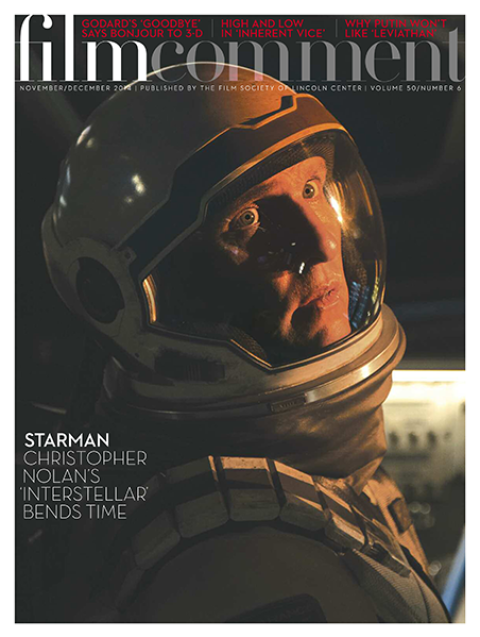
While his impeccably structured, almost ashamedly entertaining documentaries Man on Wire (08) and Project Nim (11) have proven him to be a storyteller of the highest order, James Marsh’s narrative films have tended to seem handicapped, for better and worse, by other people’s writing. Following two memorably grim procedural thrillers based on novels (Red Riding: 1980 in 2009 and Shadow Dancer, 12), his latest elegantly realizes Anthony McCarten’s adaptation of Jane Hawking’s memoir about her marriage to Nobel Prize–winning physicist Stephen Hawking.
Considering the unconventional nature of Hawking’s life—the scientist, played by Eddie Redmayne, becomes progressively paralyzed by ALS yet still authors a number of groundbreaking papers and fathers three children with Jane (Felicity Jones)—it’s disappointing to see it slotted into the formulaic conventions of the biopic genre, from a romantic meet-cute at a Cambridge coed party to a centerstage validating ovation for our genius hero.
Films like this tend to be built around a central performance, and fortunately Redmayne’s merits the attention. It’s founded on neither imitation nor the “watch me work” principle of physical contortion, but on genuine inside-out characterization. His college-age Hawking is so vividly realized that even as the scientist loses mobility, facial articulation, and finally the power of speech, we can still glimpse in the actor’s eyes traces of the man as he was before his incapacitation. He’s trapped, but he’s still in there.








